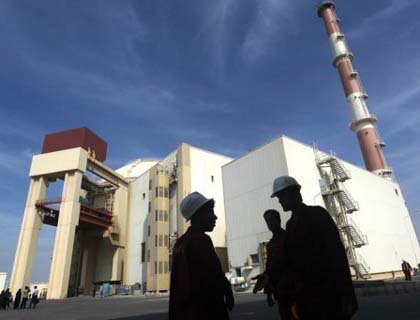Earlier this Saturday, Iran and P5+1—America, Russia, China, Britain, France and Germany---held a serious meeting in order to put an end to Tehran’s nuclear standoff which necessarily could improve its relation with the rest of the world. Initially, the expectations from the negotiations were making progress, as an afternoon session continued into the evening. But similar to usual diplomatic gesture,
each side blamed the other side of not making enough move to resolve the problem.
However, Iran had said that Saeed Jalili developed a three-point plan, a way forward to negotiation, but sources quoted from anonymous diplomats that the plan was nothing rather rehash of the old ones.
Catherin Ashton, the European Union’s head of foreign policy said, "What matters in the end is substance, and ... we are still a considerable distance apart”. Her voice tone and context of her statement showed that she was not hopeful of success of negotiations, setting no plan for future meeting and instead said she would talk to Mr. Jalili for next round of the meeting.
On the other hand, Iranian top nuclear negotiator, Jalili, talked of gap between their positions. He suggested Iran was ready to discuss meeting a key demand of the other side -- cutting back its
highest-grade uranium enrichment production and stockpile -- but only if the six reciprocated with rewards far greater than they are now willing to give.
Indeed, such constant failures and disappointment of forward movement spark diplomatic frustration and strengthen wings that prefer military option to stop Iran of developing nuclear bombs, which it
constantly declines. Israel is highly worried about such prospective because it was frequently threatened by Islamic Republic of Iran. It wants to mobilize the world against Iran and tries to stop it of building atomic bombs. It says Iran is only a few months away from the threshold of having material to turn into a bomb and has vowed to use all means to prevent it from reaching that point.
"The Iranians are using the round of talks to pave the way towards a nuclear bomb," said Yuval Steinitz, the Israeli minister for intelligence and strategic affairs, while other countries are clinging to diplomacy and economic pressures. Perhaps, all try to stop Iran because a nuclear-armed bomb appears dangerous. However Iran has signed the NPT convention and can continue uranium enrichment program, but doubt about the lack of transparency in the procedure. No doubt, Uranium enrichment program and nuclear technology are not the matter of concern. This is what the international
community maintains too. And according to the very treaty, member countries have the right to establish nuclear plant for civil purpose, the thing which Tehran constantly claims.
And presently the international community does not have the right to order the country to suspend its nuclear program if the country cooperates closely with IAEA’s observers, the thing which is the most
controversial issue. Though the International Atomic Energy Agency’s observers frequently visit nuclear sites, they cannot tell with confidence that the program is for peaceful purposes. If Tehran cooperates closely and clearifies the dominant doubts, it has the right to continue the program without worrying about possible military attacks.
Thus, because of doubts and mistrust, the international community wants Tehran to suspend its program in exchange of receiving economic incentive packages.
It has been a long time that they have become disappointed of consecutive diplomatic failures. They decided to mount pressure in hope to force the country change its stance, though officials still emphasize that doors towards negotiation is always open. But the reality shows that they are really disappointed of the regime and only force and pressure can undermine its ambition for achieving nuclear technology.
Therefore, they have decided to ratchet up pressure. The European Union recently approved to intensify sanctions against the country. It should be noticed that the European and US sanctions are different
and much harsher than those of the United Nations. The United Nations too has yet approved four rounds of sanctions. Anyhow, in the meeting held on the issue in Brussels days ago, all members agreed to ban new oil contract with Islamic Republic, and end the existing contracts till next coming six months. The time period was considered largely due to countries like Greece and Italy, the two biggest Iran’s oil importers in the EU, and nudged them to approve the sanctions.
It has been a long time that the US and EU tighten the belt of sanctions around economic activities of Tehran. Neighbors are also worried about its nuclear program. The Wikileaks release clearly showed how the neighbors are worried as some Arab leaders asked the United States to wage war against Tehran’s nuclear Program. In such situation, they are ready to instigate the international community to take tougher stance and they play out their own role. Because one of the major problems ahead of countries to form a united front against Islamic Republic was/ is its energy which, if cut out of the global market, has the potential to confront many countries with deep economic challenges.
The second thing refers to European Union’s serious concerns about Iran nuclear Program. Some of the EU members expressed inflammatory remarks and warned about its nuclear program. This stance supported largely due to last years’ IAEA’s report about suspiciousness of the Uranium enrichment program. So, it means that European countries are worried to the extent that they are ready to pay high price to mount pressure on Iran to suspend its nuclear program.

